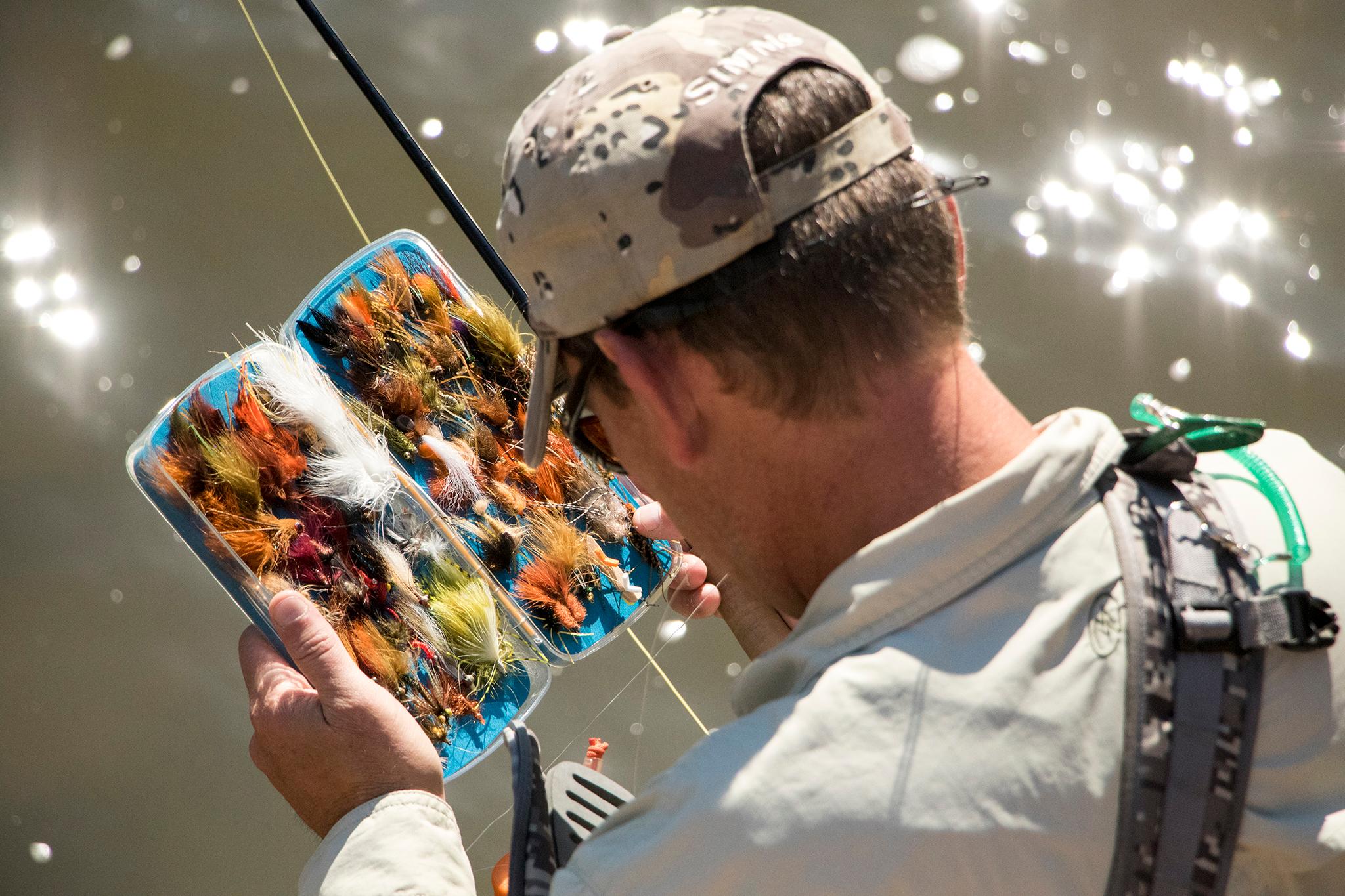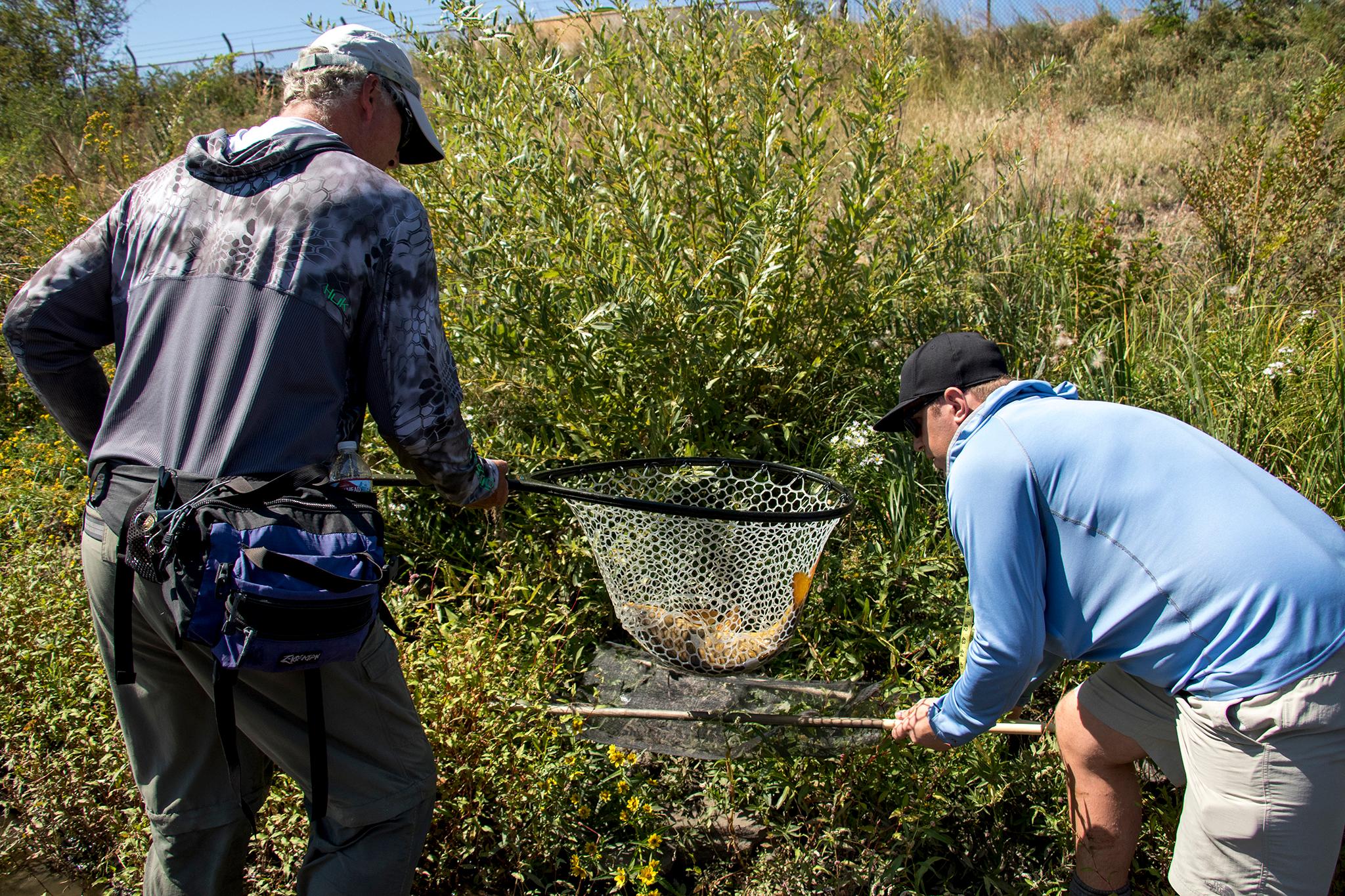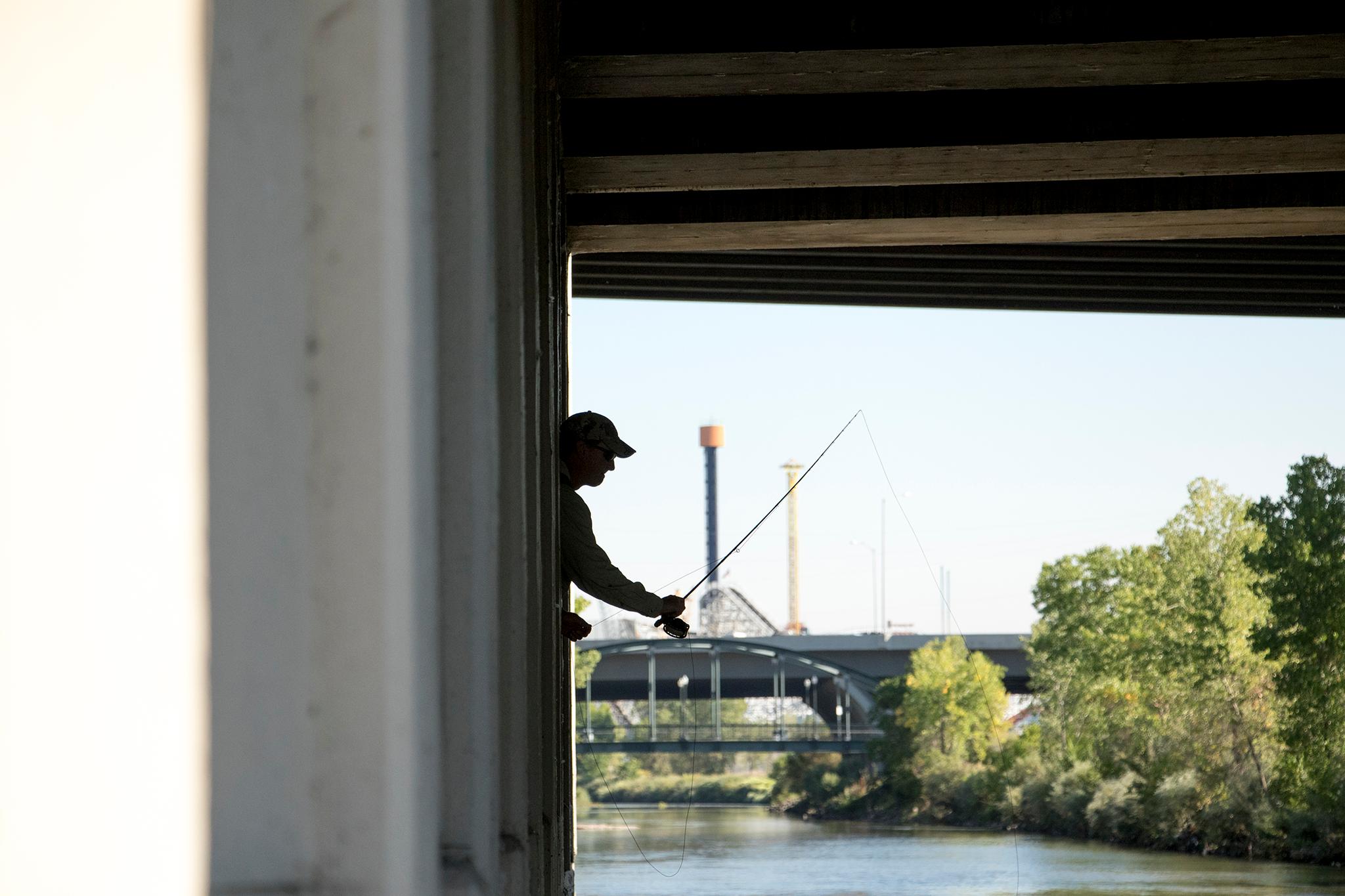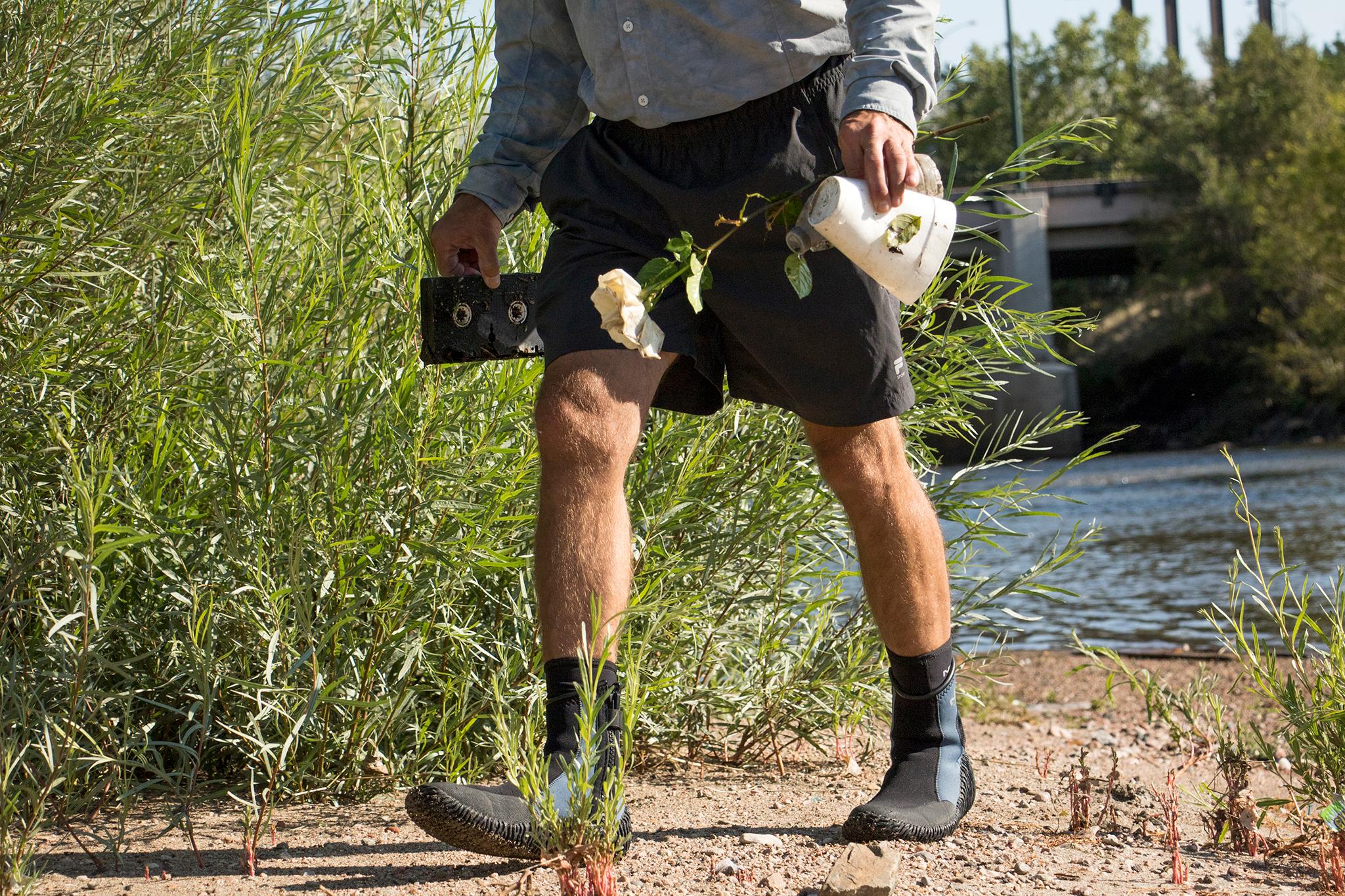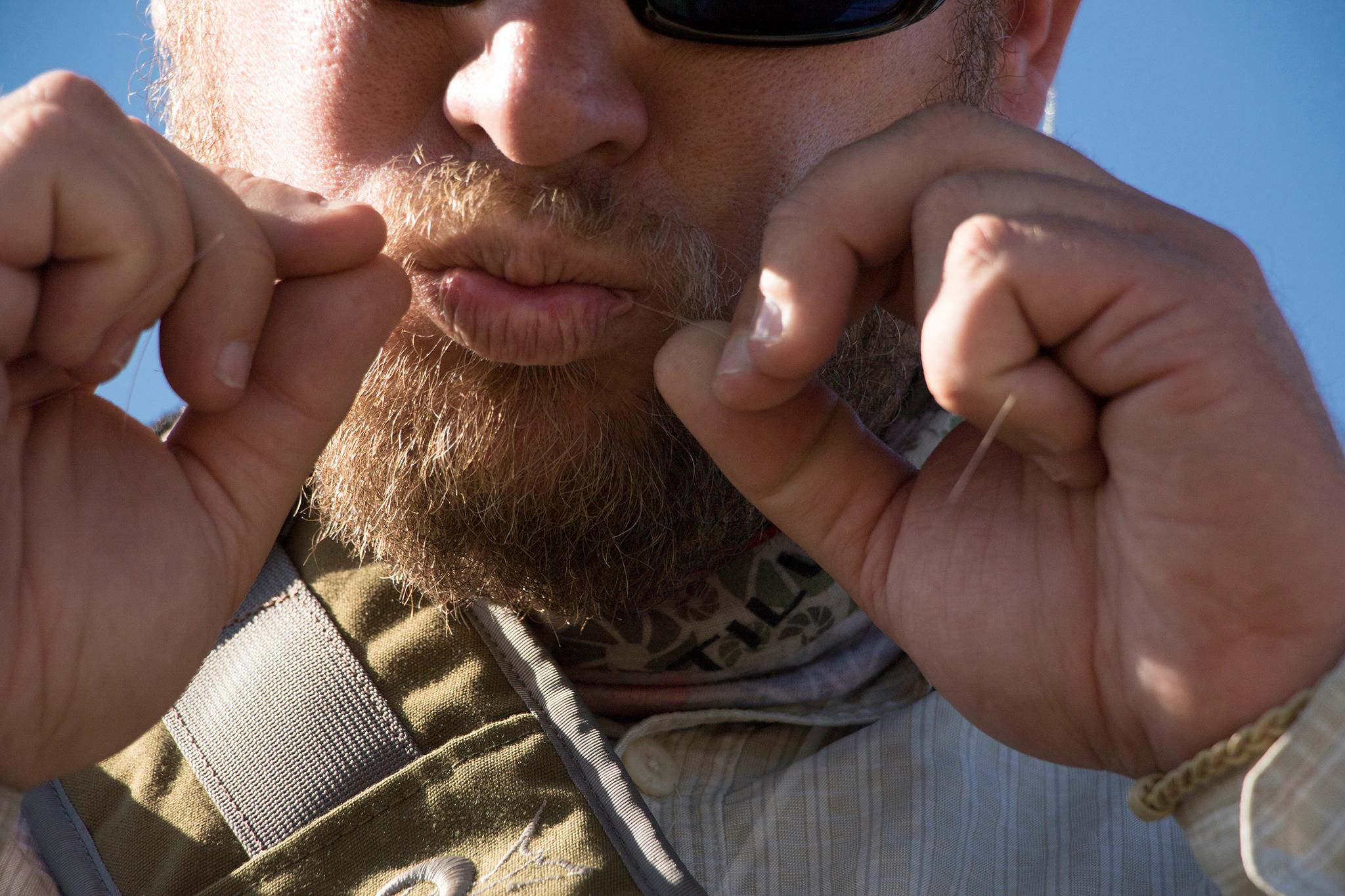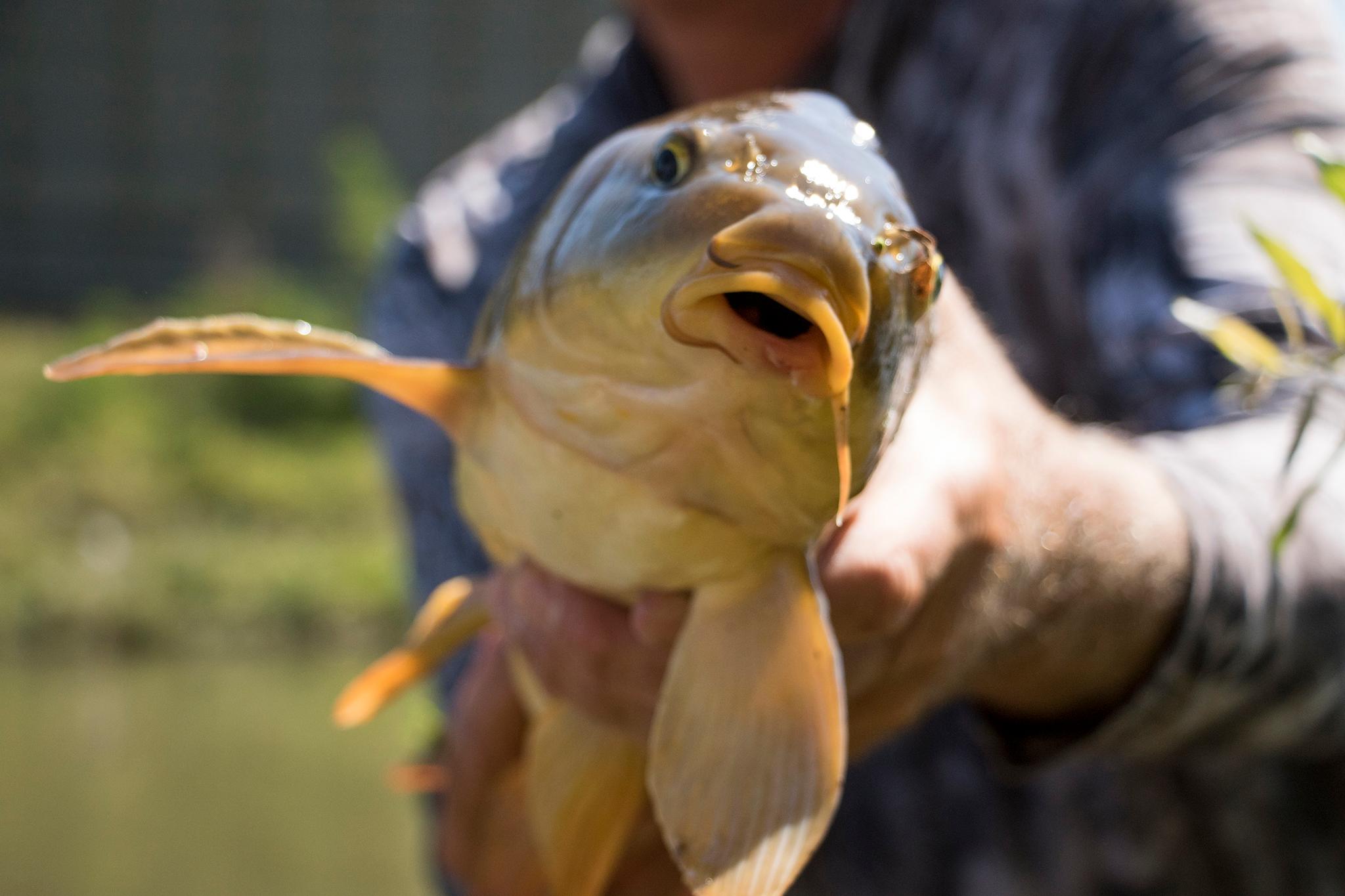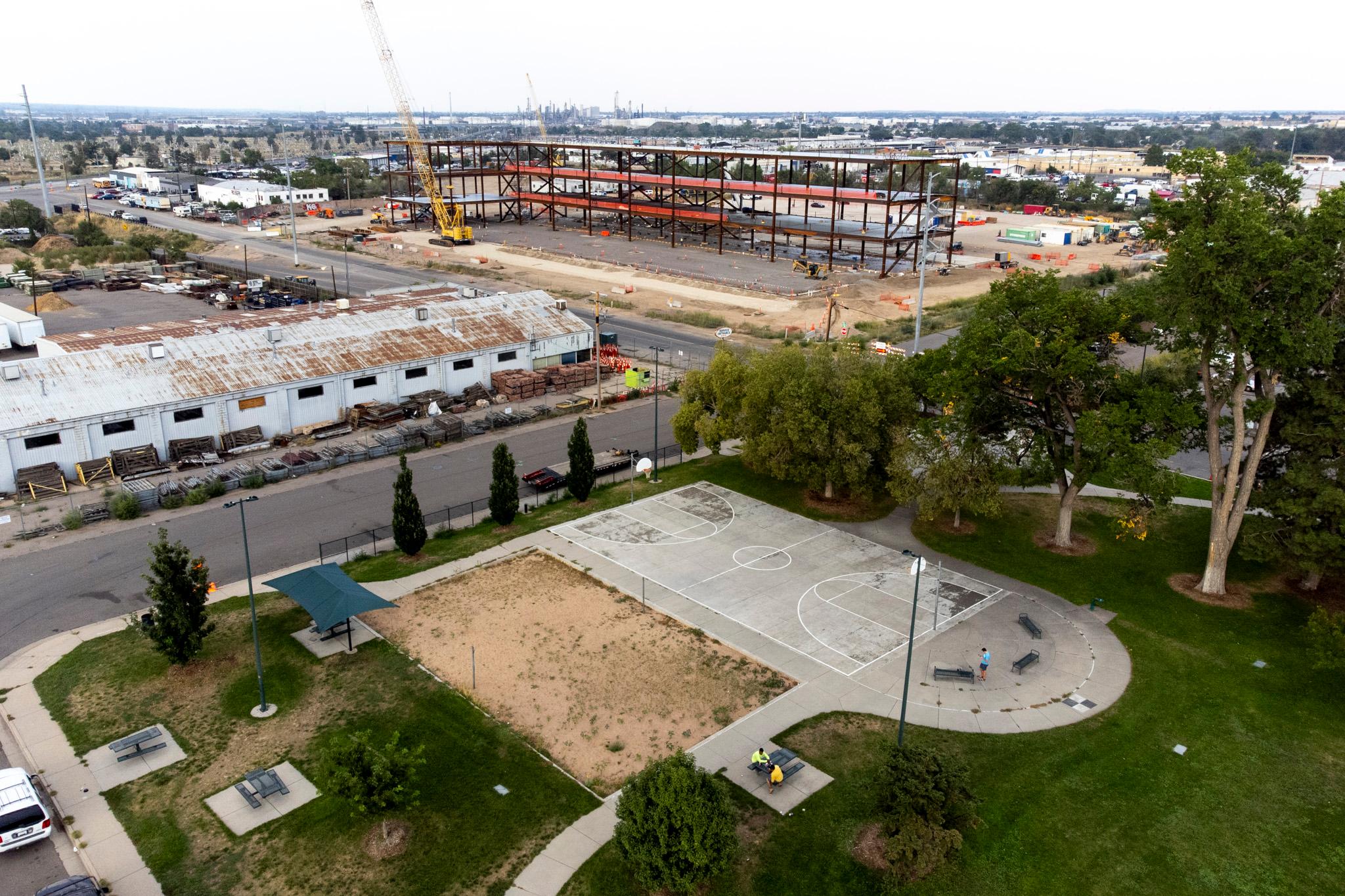On Saturday, beneath cyclists zooming by on the Platte River Trail, 30 fishermen waded through the South Platte in search of an ugly prize: German carp. The big-lipped fish has a bad rap in this country. It's a non-native species and river advocates say people tend to look down at it as a "trash fish." But you wouldn't know it by the way competitors were seeking them out during Denver Trout Unlimited's 12th-annual Carpslam.
It was a celebration of Denver's river ecosystems and a fundraiser to keep all local fish in good health despite dry spells and future development.
"This is like their Super Bowl," said John Davenport, who sits on Denver Trout Unlimited's board. "They’re very competitive."
Ty Clifton, a professional guide who works out of Meeker, was not having a great morning. He and his partner, Barry Howsden, sped downstream in their designated section of the river, casting in lines every now and then before abandoning the spot to try another. As the event's first half came to an end, they still had no luck. The fish were hanging out just upstream, and Gifford Maytham managed to hook one right as it was time to quit. Ugly or not, he was pretty excited when the fish met his net.
At the end of the day, anglers had hooked and released 17 carp. The longest was 32 inches long.
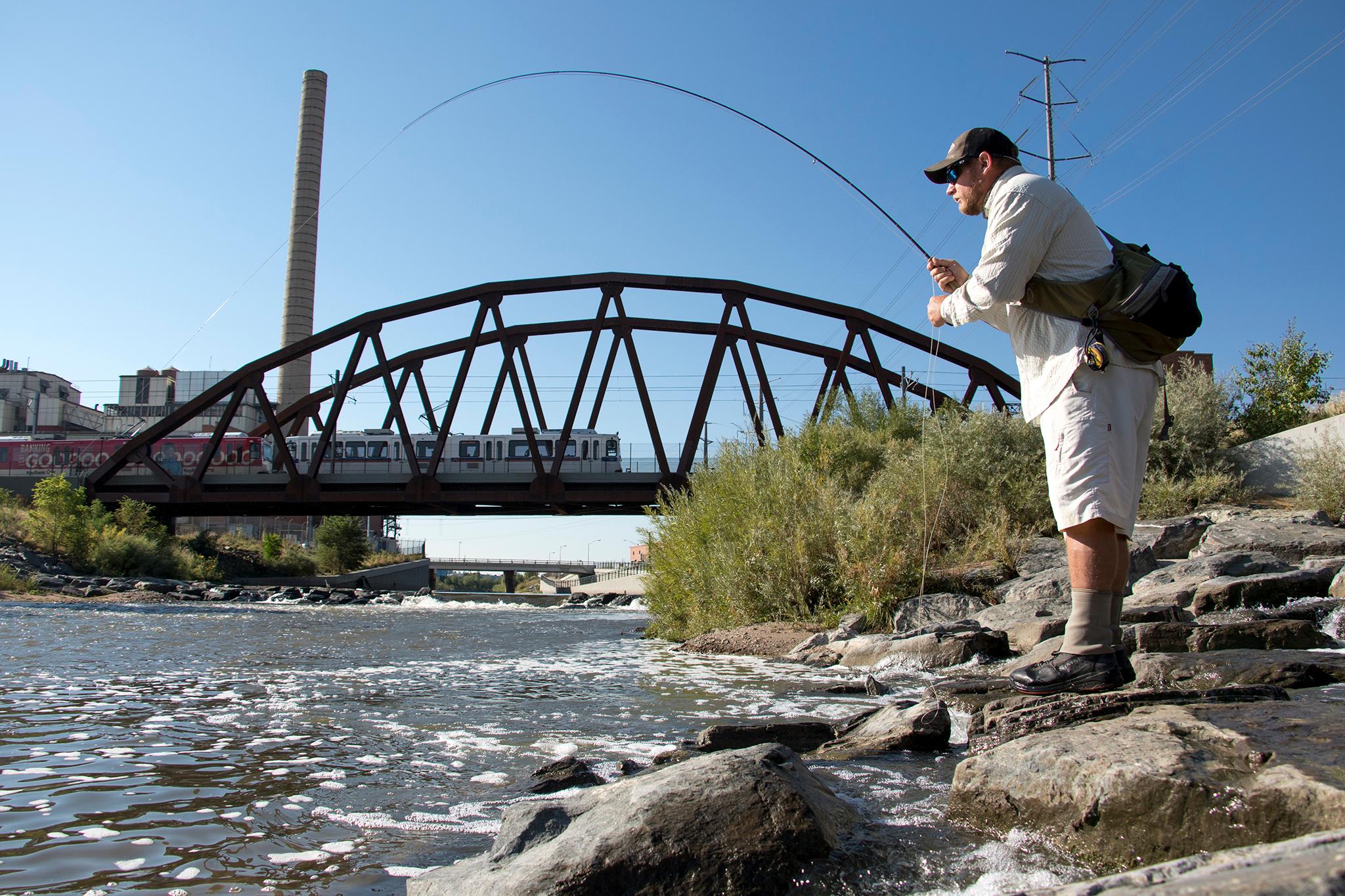
The local Trout Unlimited chapter has aggressively sought to shape South Platte development in favor of local fish. Davenport said they've worked with authorities to create deep pools along the river bottom where trout can hide when the rest of the river has gotten too hot. The money they raise during initiatives like Carpslam has allowed them to purchase instruments and funds studies to assess the river's health.
Their recent efforts, though, have been all about water availability.
Davenport said Carpslam 2018 raised about $20,000, and virtually everything they've raised in the last couple of years have gone towards buying 10 acre feet of water in the new-and-improved Chatfield Reservoir, a $75,000 investment. Parts of the lake in Littleton have been closed this summer as the Army Corps of Engineers prepares to raise the water level and increase storage, and groups like Trout Unlimited have stepped up to purchase some of that space for conservation purposes.
Their portion of the reservoir is specifically earmarked to be released into the South Platte when water levels are too low for fish to live comfortably. This year, said Denver chapter president Scott Schreiber, there have been 115 days when no water trickled out of the Chatfield dam into the river. He said that number is usually about 70 days a year. Very low snowmelt meant this summer was a particularly bad year to be a fish.
Trout Unlimited won't own the water they're paying to store. It belongs to users downstream, but buying space in the reservoir means Colorado Parks and Recreation has license to release it when necessary.
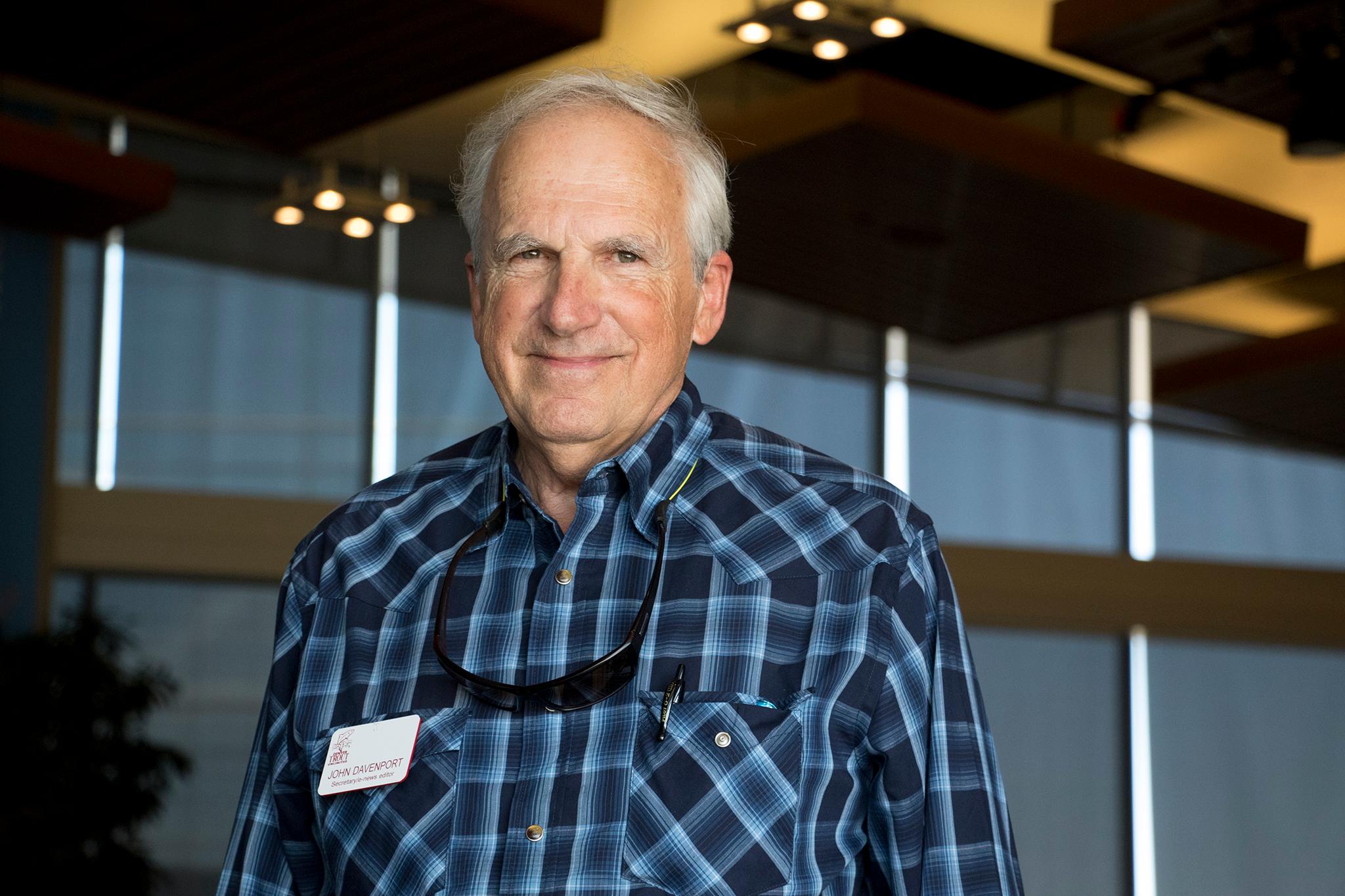
Besides solving water shortages, Davenport said the tournament is a way to connect with a city that may not think so highly of its river, or its fish.
"What’s the reason that this river has always been looked at as a problem? The answer is it’s just a perception," he said. "The conversation has to change about what your river is about."
Denver has come a long way since the river was "ecologically dead" in the 1960s. At that time, the South Platte was ignored and full of trash. Massive flooding in 1965 caused some to realize that the city needed to approach the river differently and, soon after, attorney Joe Shoemaker formed the Greenway Foundation nonprofit to advocate for riparian revitalization. By 1970, Confluence Park was open and the South Platte was on its way to rehabilitation.
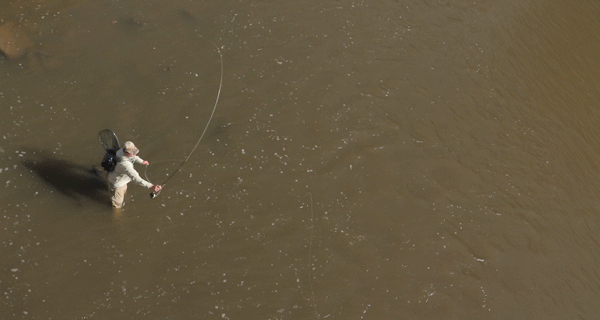
Today, Davenport said, "It’s clean. There’s not industrial waste going into it. There’s not sewage going into it. When there’s an E. coli problem it’s goose and dog E. coli."
People who fish can see that, he said. Even in the center of town, the water is teeming with life. But the river's bad reputation has stuck with it nonetheless.
"Amazing stuff happens and the public doesn’t realize it," he said.
This is important, he said, because people might think twice about throwing their garbage into the river. City ecosystem managers have reported that their jobs are still usually sidetracked by all of Denver's trash. He'd like to see residents take pride and ownership of the South Platte, and he hopes they might if they recognize it as an active ecosystem.
Davenport added it's funny that Trout Unlimited is using Carpslam to raise the river's profile. The event's star species is also under-appreciated.
More ironic is that carp were used to stock the river as a direct result of poor river management way back when settlers came to the west in search of gold and Manifest Destiny.
During America's early expansion, settlers hooked millions of native species out of creeks and rivers. As towns popped up across the west, they began dumping waste and sewage directly into waterways. Settlers logged overzealously and dredged rivers without much care. Fish populations were decimated. It was so bad that President Ulysses S. Grant created a fish commission in 1871 to deal with the problem.
The commission's solution was to import carp from Europe and distribute it across the country. They were loaded into nurseries and ponds near Washington, D.C. and then shipped west. In December 1879, the Denver Daily News published a letter to the governor from Wilson E. Sisty, commissioner of the "Colorado Office of the Fish." In it, he said 450 carp and black bass had been relocated to communities throughout Colorado, and more than 500 whitefish eggs were coming next. The South Platte and Sloan's Lake were among the receiving habitats, and those populations have continued thrive.
It seems Americans never quite took to them like they did to trout, though.
Even though carp species are eaten with gusto all over world, Davenport said, "Here, for some reason, we think they're the root of all evil."
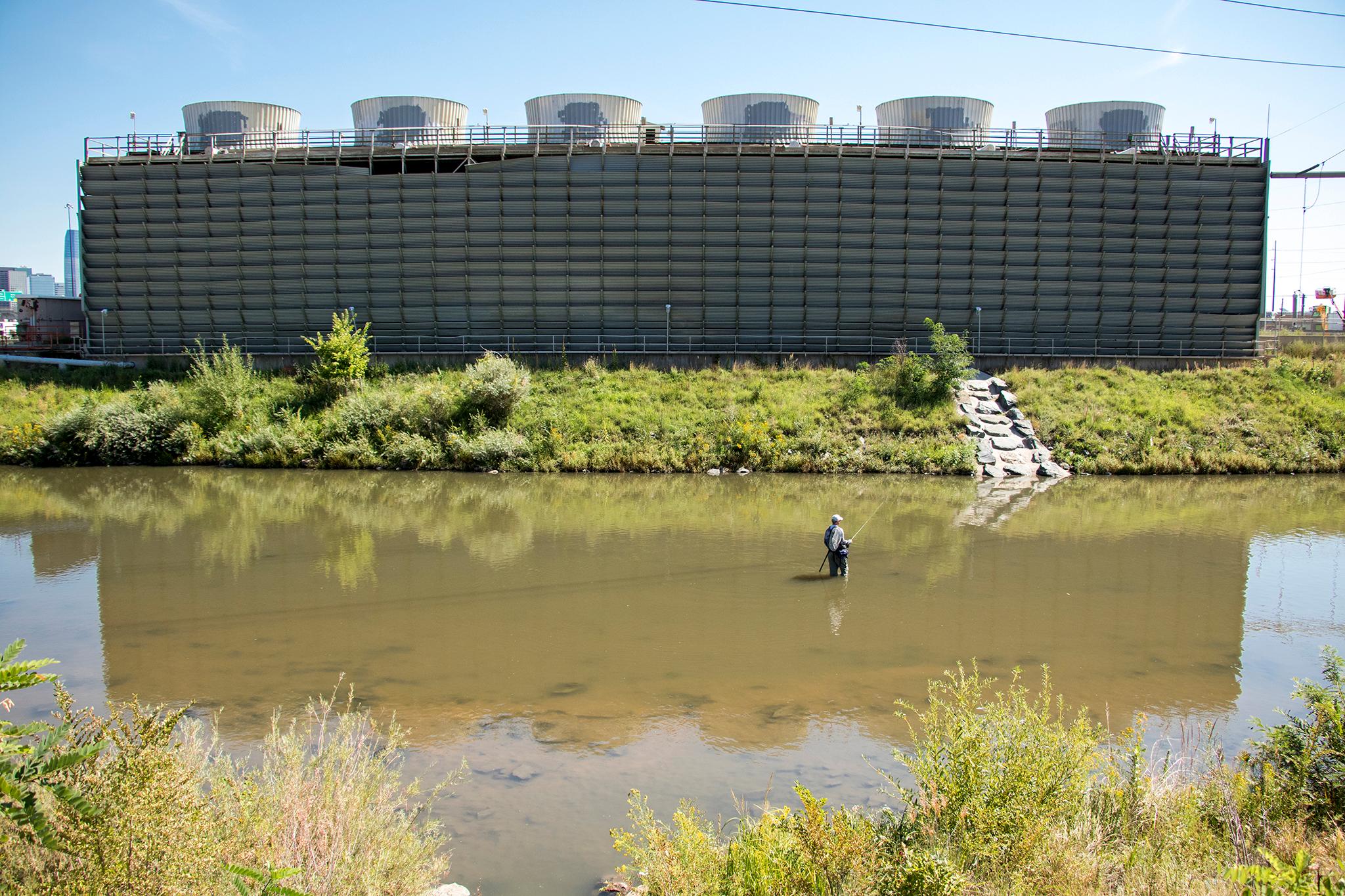
Today, Davenport said, native trout populations are thriving, too. He aims to keep it that way.
While he hopes that Trout Unlimited's work helps Denverites think better of the river (and yes, also carp), Davenport said his real audience are the developers who are poised to make big changes in coming years. He said he hopes the organization gets a seat at the planning table.
A massive development will likely eventually take over Elitch Gardens' site, and there are plans for a riverside promenade and trash-eating wheel further north along the Platte. In all cases, Davenport hopes the projects will make maintaining the local ecosystem a priority from the start.
"It is entirely possible to do things right," he said. "It’s not necessarily more expensive, it just has to be considered."
Davenport said he's encouraged that Trout Unlimited has had a voice so far in those plans, although he's not so sure about the trash wheel.
"If they can show me they can have a healthy river and a water wheel, terrific, I’m all for it. But if they want to steal the river in order to put in a waterwheel attraction, I’m afraid we’re going to have to oppose it."
Trash wheel or no trash wheel, Davenport and his angling comrades have firmly planted their flag in the South Platte.
